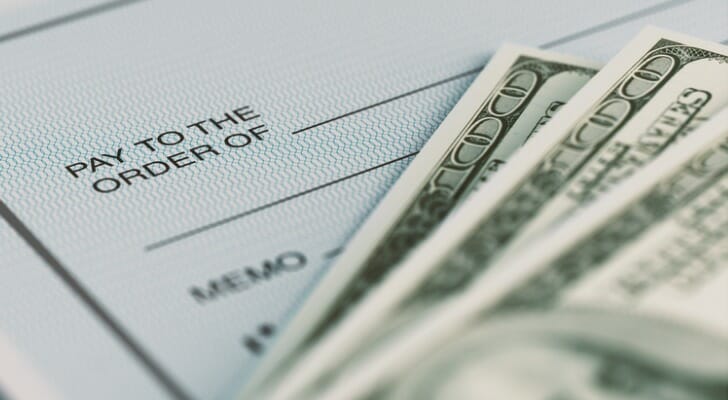Check cashing services offer a convenient way to access your funds quickly but often come with various fees. Understanding these fees can help you choose the most cost-effective service and avoid unnecessary charges. This guide explains the different types of check cashing fees, how they vary by service provider, and tips to minimize these costs.
Types of Check Cashing Fees
Check cashing fees can vary widely depending on the service provider and the type of check. Here are the most common types of fees you may encounter:
- Flat Fees:
- Some check cashing services charge a flat fee per check, regardless of the check amount.
- Example: A $5 fee for each check cashed.
- Percentage Fees:
- Many services charge a percentage of the check amount.
- Example: 1-4% of the check’s value.
- Minimum Fees:
- A minimum fee is charged if the percentage fee does not meet a certain threshold.
- Example: A minimum fee of $3 even if the percentage fee is less.
- Additional Fees:
- Some services may charge extra for additional services, such as expedited processing or issuing a prepaid card.
- Example: An extra $1 fee for same-day cashing.
Fees by Service Provider
Different providers have varying fee structures. Here’s a breakdown of fees by standard check cashing services:
- Banks and Credit Unions:
- Often free for account holders.
- May charge a fee for non-account holders, typically $5-$10.
- Check Cashing Stores:
- Typically, charge a percentage of the check amount, ranging from 1% to 4%.
- Example: 7-Eleven Check Cashing
- Grocery Stores:
- Fees vary by store and location.
- Example: Walmart Check Cashing charges $4 for checks up to $1,000 and $8 for checks over $1,000.
- Online and Mobile Services:
- Fees can include a flat fee, a percentage fee, or both.
- Example: PayPal charges 1% for government and payroll checks with a preprinted signature and 5% for all other checks.
Tips to Minimize Check Cashing Fees
Here are some strategies to help you minimize the fees associated with check cashing:
- Compare Fees:
- Before cashing a check, compare fees at different providers to find the lowest cost option.
- Related Article: How to Choose the Best Check Cashing Service Near You
- Use Bank Services:
- If you have a bank account, cash your checks at your bank to avoid third-party fees.
- Opt for Direct Deposit:
- If possible, opt for direct deposit to avoid check cashing fees altogether.
- Look for Promotions:
- Some services offer promotions or discounts for first-time users or certain checks.
- Prepaid Cards:
- Some check cashing services offer prepaid cards with lower fees than cash payouts.
Related Articles
- Avoiding Common Check Cashing Fees: A Comprehensive Guide
- How to Cash a Check Instantly
- Online Check Cashing Guide
- Cash a Check Without a Bank
Conclusion
Understanding check cashing fees is crucial for managing your finances effectively. You can minimize the costs associated with cashing checks by comparing fees, using bank services, and exploring other options like direct deposit and prepaid cards. Explore the related articles linked throughout this guide for more detailed information on specific services and tips.
